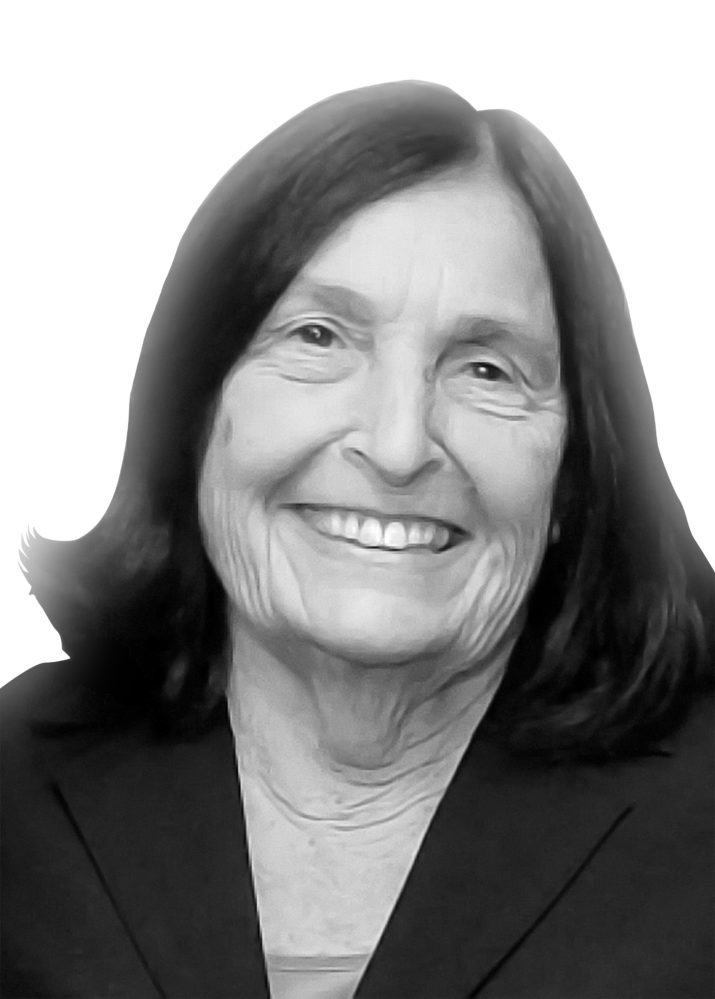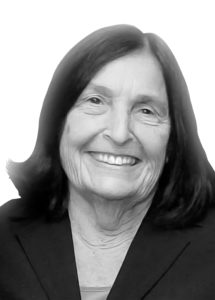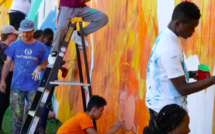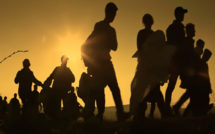

This is part of our special feature on forced migration, Narration on the Move.
In 2018, eighty-five years after the founding of the University in Exile, which became part of the New School for Social Research, Arien Mack of the New School launched the New University in Exile Consortium. The original University in Exile was created to rescue Jewish and other German scholars facing imminent threat during the rise of Nazi Germany, and upheld the idea that universities everywhere should be deeply concerned by attacks on academic freedom anywhere. In today’s world, repressive and authoritarian governments across the globe are an increasing threat to intellectuals and civil society writ large. The recent university purges in Turkey are but one prominent example of the consequences that speaking one’s mind and publishing rigorous, dissenting research can have for an academic career, not to mention the physical safety of academics and their families.
Drawing on a long career of teaching, research, and overcoming obstacles to the circulation of ideas and free expression of thought, Mack decided to respond. The New University in Exile Consortium promotes the vitality of intellectual expression and the academy in two ways. It fosters a collaborative and globally engaged spirit in America by building a community of universities dedicated to providing fellowships for endangered scholars, and it champions the research and careers of academics fleeing persecution from all over the world. In this interview, Mack discusses the genesis of the New University in Exile Consortium and how it supports endangered scholars.
—Matthew Brill-Carlat for EuropeNow
EuropeNow I’m curious about how you came to start the New University in Exile Consortium. Can you tell me about the trajectory of your work around endangered scholars?
Arien Mack Some years ago, I became friendly with a young man who was teaching at a different division of the New School and who had dual Iranian and American citizenship. I was then running a program I had started in 1990 called the Journal Donation Project, which became a major source of academic journals for university libraries in many different countries, which could not obtain them on their own, for either political or economic reasons, and often for both. Over its twenty-eight years of operation, it provided hundreds of subscriptions to universities and research libraries. It started when the [Berlin] Wall came down, in countries in Central and East Europe and Russia — the former Soviet Union — countries that had not had access to journals from the West, in the social sciences and often in the humanities. The project grew and was extended to countries in Sub-Saharan Africa, Vietnam, and Central Asia, and there came a point where we wanted to bring the Journal Donation Project to Iran, because it seemed like a place that could benefit from it, if it were allowed.
It took over a year to obtain visas but we ultimately did and went. Bill Clinton was president, and the relations with Iran were much, much better than they are now. It was a moment in Iran when it looked like there was an opening to the West and a move toward a less repressive society. In planning our trip, we benefited greatly from the advice of my Iranian-American colleague at the New School, Kian Tajbakhsh. Kian was a political scientist, and he put me in touch with people in Tehran, who were actively involved in trying to liberalize the society. Through Kian I met many extraordinary activists — mostly women — and we also met with university administrators and faculty who were eager to receive journals through the JDP, which they did for a number of years. Sometime after my return Kian decided to leave the New School and move back to Iran where he was eventually arrested.
The first time he was arrested, he was imprisoned for a number of months. The second time he was arrested and imprisoned was for a for a much longer time, and he was subjected to very difficult conditions and endless interrogation. Because Kian was my friend, I knew that any accusation that he was somehow in league with organizations that wanted to overthrow the Iranian government was absurd. Consequently, I felt it necessary to do something to try to help him and we launched an active online campaign protesting his arrest and demanding his release. It was Kian’s totally unjust arrest and imprisonment that was at the root of my concern for persecuted scholars.
As a professor at The New School for Social Research, the home of the first University In Exile, which was created by the New School’s first president in 1933 with a group of the largely Jewish intellectuals and academics whom he brought out of Germany as Hitler was rising to power, it seemed incumbent upon us to create a new, twenty-first-century version of the University in Exile. At first, all I did was raise money, primarily from a wonderful and generous member of The New School’s Board of Trustees, to bring an endangered scholar to the New School as a fellow. This fellowship became the New School’s “University in Exile” fellowship, which, with the collaboration of Scholar Rescue Funds has allowed us to bring an endangered academic to The New School each year for the past thirteen years. As time went on, it became clear to me that we were not doing enough to help persecuted academics. As a longtime member of the faculty, which had originally been the University in Exile, I decided it was worth trying to create a new version of the University in Exile. It seemed crazy at the time but we made it happen, and by some miracle we now have a New University in Exile Consortium that has sixteen universities and colleges as members and is growing.
EuropeNow Since the Consortium was launched in September 2018, how many scholars have been hired at member schools?
Arien Mack First of all, we do not hire endangered scholars. Our Consortium schools do that. And in 2018 and 19 we had fifteen scholars, three of them now have permanent positions. These are extraordinary success stories, and they are unusual. Exiled scholars have great difficulty finding academic positions once they complete their 2- or 3-year fellowships.
EuropeNow What are some of the biggest challenges that scholars face when they arrive in the US for a fellowship and when they look for what comes after the fellowship?
Arien Mack The biggest challenge is the challenge that is faced by anybody who is forced to flee, who is forced into exile. Exiles lose their identity, they lose their language, very often much of their family remains behind. They are deeply uprooted. Exile is a painful condition. In fact, the reason for the New University in Exile Consortium’s existence is to try in any way we can to mitigate and moderate that sense of uprootedness — of not belonging — that comes with being in exile. Our main mission is to foster a sense of community among the scholars, even though they’re geographically separated at the member universities. We meet once a week online during the academic year through a seminar that we host. Last year it was led by Richard Bernstein, a distinguished Philosophy faculty member at the New School; this year it will be hosted by Judith Friedlande, an anthropologist who was most recently at Hunter College, which is in the process of becoming a Consortium member.
EuropeNow I’m interested in the support system that you have, and how that might distinguish the New University in Exile Consortium from other programs that bring scholars to the United States.
Arien Mack Having worked for a long time with Scholar Rescue Fund, and being familiar with Scholars at Risk, I believe we do something that neither of these organizations does. One of the reasons I started this Consortium was because I realized from talking to exiled scholars, our hosted scholars and scholars hosted by other institutions, that these scholars were pretty much left to their own devices. Some of them taught, and that helped a little, but not enough. So, what distinguishes us is that our main mission is to build a community among exiled scholars, all of whom, no matter where they come from or what their discipline, suffer from being in exile.
We try to do this with various programs, like the online scholar seminar, and our summer retreat that we had in July at Connecticut College, which is part of the Consortium. The scholars came with their families, their husbands or wives, and children for two and a half days. During the retreat we spent a great deal of time talking about what we can do to be more proactive, but there was also time just to be together and talk. As a consequence we have now become a real family-like community. Were this to be sixty institutions with sixty scholars, we’d have to rethink the model or break it up into smaller cohorts, but we haven’t faced that yet. We held Zoom phone calls over the summer to stay in touch with everybody. And the good news is that the scholars stay in touch with each other. They reach out to each other, they invite each other to come speak at each other’s campuses, something we are formalizing in the coming semester.
EuropeNow I saw on your website that you offer online courses with stranded scholars: endangered scholars who can’t leave their country to come to the US for a fellowship. Could you talk about those online courses and how they address a particular need?
Arien Mack We ran a course last spring with a Turkish sociologist hosted at the New School and a colleague of his who was stranded in Turkey, and we did it in collaboration with Off University in Germany. We’re running another class this fall with Off University, with another Turkish scholar and another stranded colleague in Turkey and we are at this very moment trying to figure out how we can go beyond Turkey. Happily, with grant support, we are able to give the Consortium scholar a modest honorarium, and provide the stranded scholar with an honorarium as well, which in the case of Turkey is worth approximately double what it is worth in the United States. I think this is something that is badly needed and so we are working to increase the number of seminars offered.
EuropeNow Online courses seem particularly necessary, given the current American administration’s immigration policy.
Arien Mack Yes, because of the difficulty of getting into the United States, but also because it enables students in these countries to participate. Off University has developed software that allows students to enroll anonymously, so the students are not at risk. We are currently working to offer this in Cambodia and other places where academics are routinely persecuted and attacked. The courses are free, and they’re open to anyone who wants to take them, whether in the United States or abroad.
EuropeNow Are the online courses integrated into the New School’s curriculum?
Arien Mack No. That would be very difficult to do. New School students can take the seminars, but they would not receive New School course credit. Students who complete the seminar requirements receive a signed certificate from the New School for Social Research dean, saying that they have satisfactorily completed the seminar. And that is worth something for stranded students in repressive countries, but less, I think, to American students.
EuropeNow When the scholars are in the United States, how do you balance publicizing their visits and their work with privacy and security concerns?
Arien Mack We work with the hosted scholars to ensure their privacy and it is they, not us, who determine how public they are. For example, we held a public exiled scholars conference on Threats to Academic Freedom this spring at which only those scholars who wanted to speak spoke. The online seminar hosted by the New School is a safe space because you cannot access it without a private login code. We do try to help our scholars get their work published. For example, two of our scholars are currently engaged in writing a proposal to organize a special issue of Social Research, the journal I’ve edited for many years. We also encourage our members to submit short articles to Public Seminar, a New School online magazine and if our scholars publish elsewhere, we publicize it on our website.
EuropeNow What have been some of the big successes and challenges of the Consortium since it was launched in September 2018?
Arien Mack I think the fact that it exists to begin with is a miracle. We started with no money. It was me and three colleagues at the New School who talked with me about doing this along with advice from several colleagues familiar with helping endangered scholars who are not at the New School. The most extraordinary thing about the Consortium is that it exists, it’s real, and it’s funded.
I think the scholars are finding that it is changing their lives. I think they look forward to our conversations with each other. I think they’ve gotten to care about each other. That you can build a community that nurtures empathy among its members, and do it largely online, wasn’t obvious to me. But it seems to have worked, and I think that’s a success.
EuropeNow Where do you see the Consortium going from here? What are some next steps?
Arien Mack We’d like to increase the membership. We’d like to increase our capacity to help the scholars find their way at the end of their fellowships. Most of them can’t return home. We’re currently trying to create a sourcebook of all kinds of other opportunities the scholars can apply for. We will hold another conference in the spring with the scholars. We bring the scholars to the New School at least once every semester. We have liaisons at every Consortium school, and we bring them to the New School as well. Not much of this is done by other organizations. In other words, we’re very hands-on. We’re still a small group, so the question is what happens as we grow.
EuropeNow Is it your sense that most of the scholars are fleeing long-term dangers, such that they might not ever be able to go back?
Arien Mack Yes, long-term dangers. Maybe not never, but long-term.
EuropeNow What is your outlook on academic freedom in the world today?
Arien Mack It is in very rough shape. European Humanities University had to leave its home. Central European University has been forced out of Budapest. It’s not in great shape. It’s better in the United States than in countries with authoritarian regimes.
EuropeNow One of the things that I’ve been thinking about, also, is the problem of brain drain, particularly in countries that have long-term authoritarian governments and see many scholars leave.
Arien Mack Let’s take China as a case in point. Intellectuals, and particularly those who are critical of what’s being done by the government, face almost-certain persecution. If they speak out, they’re imprisoned. Can they go back? Yes, they can go back if things were to change. As of now they must live with censorship and threat of persecution. There’s not going to be much to go back to for a long time in places like Syria. Turkey may become a place to which exiled scholars will be able to return but not for now. Does this mean that the countries from which scholars have to flee are suffering a brain drain? Maybe, but it is caused by those on the inside and not those on the outside.
Arien Mack is the founder and director of the New University in Exile Consortium. She is the Alfred and Monette Marrow Professor of Psychology at The New School for Social Research, where she has edited the journal Social Research since 1970. She is also the founder and director of the Journal Donation Project, and directs the Center for Public Scholarship.
Matthew Brill-Carlat is the Coordinator of Research and Pedagogy for the Consortium on Forced Migration, Displacement, and Education. He is a recent graduate of Vassar College.
Published on October 29, 2019.




